Zisize Centre at Ingwavuma
The centre began as a Teachers’ resource centre in mid 1999 in a tiny room in an out-of-town community centre. |
|
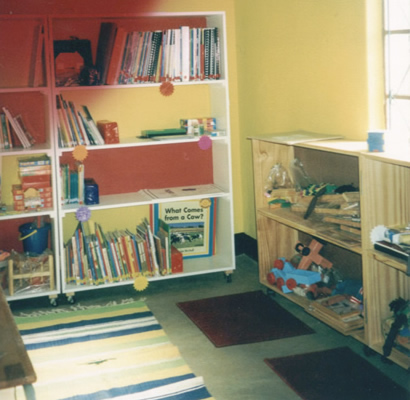 |
|
This was to be a pragmatic response to the gross and in some cases total lack of resources at many of the primary schools at that time, enabling teachers to borrow books and teaching materials. Niki Lee and Hlengiwe Mthimkhulu visited the local primary schools within 15km of the centre and invited schools to become members and use the facilities. They were greeted with responses ranging from great excitement from some principals and individual teachers to extreme apathy and disinterest from others. A decision was made soon afterwards to invest energy where people showed a level of self motivation, hence the name ‘ZISIZE’ – ‘help yourself’. The contents soon outgrew the building and The Employment Bureau of Africa were persuaded to allow us to use a disused dormitory near the centre of Ingwavuma (below) free of charge, for which we are eternally grateful. |
|
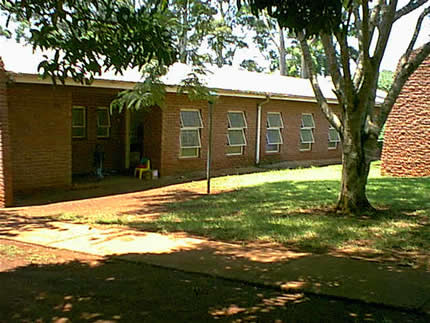 |
|
Its location made it more visible to the wider community and even before opening in January 2000, children began to visit it, offering to help but staying to play with the toys & puzzles – a play centre evolved. |
|
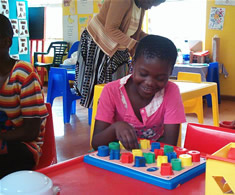  |
 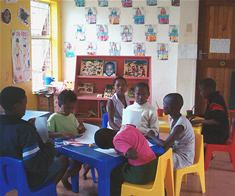 |
Children used to sit and read books at the Centre. Then some asked if they could borrow books. A community lending library soon evolved |
|
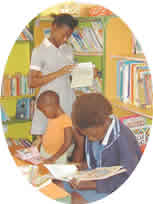 |
 |
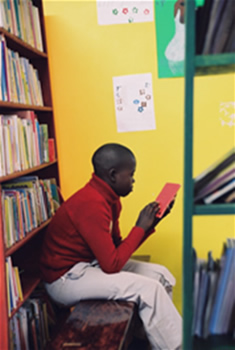 |
 |
Parents desperate for a good education for their children asked us to run a bilingual preschool class - so we did. |
|
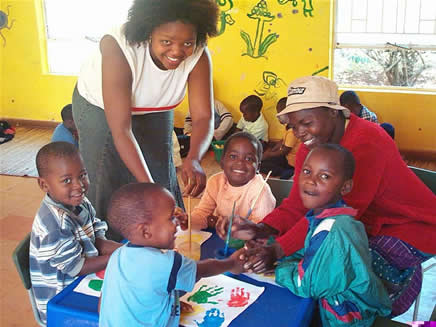 |
|
Teachers asked for help to purchase science kits, so we bought some with money from Old Mutual and liaised with the Solon Foundation which contributed 75% of the cost for each of the member schools of Ingwavuma Primary Science Interest Group. Teachers come from up to 60km away to attend workshops with Brian Gray, who is funded by Solon. |
|
We have also run preschool, literacy and drama workshops at the Centre and will be running more in 2006.High school students asked if they could use the centre to study and we facilitate this and the use of study guides.Bridget runs regular Battle of the Books Competitions at the Centre which encourage children to read and understand what they are reading. |
|
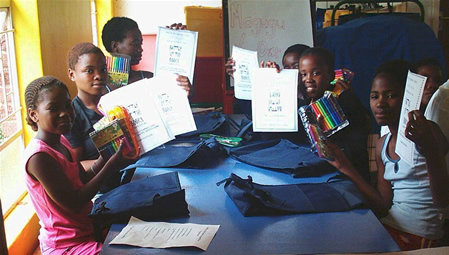 |
|
The building has now been bought by the Department of Education, who have kindly allowed us to remain there, without charge while we have been building a new centre on tribal land at KwaQatha. (below) |
|
 |
|
Money for building has come from UNISON prize money for the Bob Cotton award 2002, donations from branches and regions, from Victoria & Adam Freudenheim and the amazing proceeds of an art auction in London in December 2003, run jointly by Anglo-American and Starfish. Building costs have rocketed and so we have had to simplify the design and do not have enough funds to cover everything, but by the beginning of 2006 we should have a centre which is at least partially operational. When complete and fully functional, we will, in addition to the current facilities of preschool class, play centre, study group, library and teachers’ resource centre be offering:-
And when funds allow and practicalities are resolved:-
|
|
| ^ back to top | |